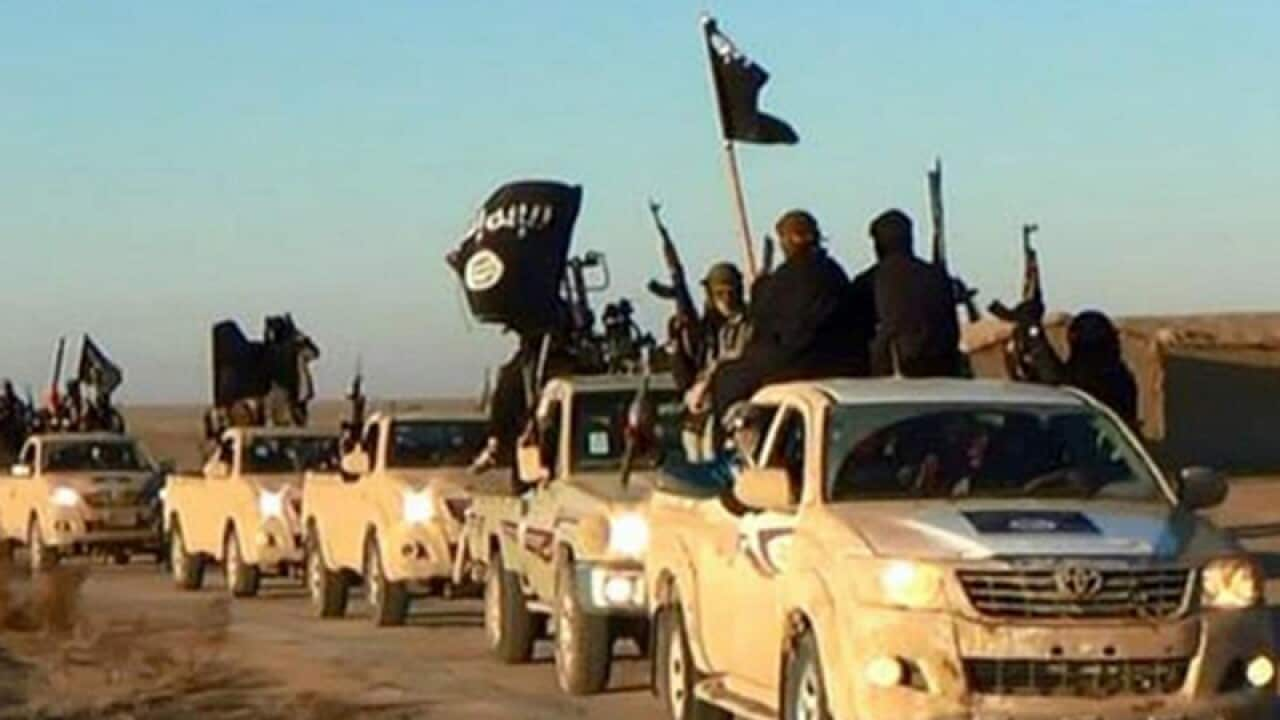Human Rights Watch and the United Nations High Commissioner for Refugees (UNHCR) have been monitoring the movements of up to 55 people who said they were intercepted by Moroccan authorities near the border last month.
After being forced back towards Algeria, they were then blocked by that country's authorities as well, forcing them to set up a desert camp near the Moroccan city of Figuig.
The group includes 20 women and 22 children.
Ahmed Benchemsi, the Communications Director for Human Rights Watch's Middle East and North Africa division, said one of the asylum seekers recently gave birth in the area, but the mother and child's conditions remain unclear.
"Information has been scarce," Mr Benchemsi said. "This is a deserted area. They're sleeping outside and don't have any access to any services.
"They're basically left alone in an area where they can't buy goods, where they have no access to medical services, and we're calling on the governments to take urgent and necessary measures."
UNHCR spokesperson William Spindler told SBS World News the asylum seekers have been receiving help, but remain in a "precarious position".
"They have been receiving sporadic assistance from local associations," he said. "We have been told that a number (of asylum seekers) have re-entered Algeria, but we don't know how many."
Mr Spindler said he was still working with both countries to come up with a solution.
In a statement, the Moroccan embassy in Canberra said the country "has no objection to receive (Syrian) refugees only if they pass through the regular diplomatic channels".
"Morocco took the decision of launching, by consensus after calls from the National Commission of Human Rights and Civil Society actors, the National policy of migration in 2014, which has consisted in regularising the situation of about 25,000 people so far," the statement read.
"The Kingdom does not accept to promote illegal immigration and jeopardize the stability of its borders.
"Morocco has already hosted 5,000 Syrian refugees and calls other countries, who organised the flow of illegal immigrants across the Moroccan border, to shoulder its responsibility towards these refugees.
"In this regard, it is worth mentioning that Morocco does not use immigration as an element of pressure in the bilateral agenda."
SBS World News also contacted the Algerian embassy in Canberra for comment.
Human Rights Watch said Morocco is only willing to give visas to nine out of 13 asylum seekers who have family in the country.
"A member of Morocco's government said Morocco is a sovereign nation and they would not be compelled to accept people without the proper documentation," Mr Benchemsi said.
"They have international obligations to take care of them and to provide necessary social services. The next legal step is that they're granted an opportunity to seek asylum in either one of the countries."
'Pushed back towards Algeria'
Human Rights Watch said it spoke to one of the asylum seekers in late April, who said her group had travelled from Syria to Algeria via Libya and Sudan.
"We were a group of 14 people, mostly women and children and only one man," she said. "We crossed the Moroccan border with the help of local people, but Moroccan border guards stopped us and made us spend the night.
"The next day they pushed us back toward Algeria. But Algerian border guards intercepted us and didn't allow us to enter Algerian territory.
"Now we are stuck between the Algerian and Moroccan borders and no one is providing us with any food or any kind of assistance."
A video posted on YouTube last week appears to show a young girl describing the conditions they've been forced to live in.
"Algeria is not allowing us to enter, neither is Morocco," she said. "We are exhausted. We urge any country to help us.
"We are living in the desert... people are afraid to fall asleep because of the snakes and scorpions. If we sleep we might not wake up.
"No person would accept to live in such conditions... every child and adult here is sick. We are going to die here."
Mr Benchemsi said Morocco is home to thousands of Syrian refugees, and this is the first instance he's heard of any being prevented from entering.
"We know that the UNHCR is aware of the situation, but they haven't seen them so far to our knowledge," he said.
Documentary: Inside Assad's Syria
Share




